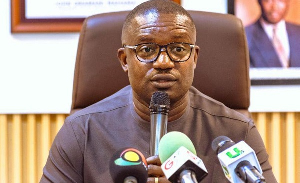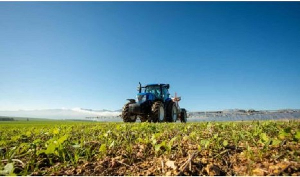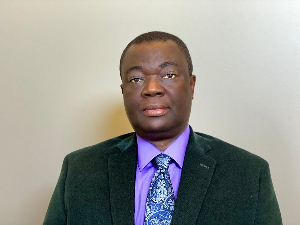Stakeholders have called for better monitoring, evaluation and management of the District Assemblies Common Fund (DACF) allotted to Persons With Disabilities (PWDs) to ensure its sustainability.
The allocation of the two percent share of the DACF to PWDs is meant to provide them with employable skills and assistance to brave societal challenges, reduce poverty and enhance their social image.
However, teething problems arising from the management, allocation, disbursement, recovery of the funds could derail its intended purposes.
These came to the fore at a Stakeholders Dialogue held at the Adentan Municipal Assembly premises recently.
A policy brief (2014) titled “Making the two percent of the District Assemblies Common Fund Work for Persons With Disability cites Article 41 of the Disability Act which mandates the National Council on Persons with Disability (NCPWD) to propose policies and strategies allowing PWDs to participate in national development”.
This also requires that the NCPWD, in collaboration with other stakeholders, abide by the guidelines developed in 2007 for the disbursement and management of the two percent share of the DACF for PWDs.
The disbursement and management of the two percent of the DACF for PWDs have thus become a great relief to PWDs who, hitherto, were unable to access their fair share of the fund.
For the judicious disbursement and management of this fund, all District Assemblies have opened separate disability bank accounts and set up District Fund Management Committees (DFMCs) to oversee its proper administration.
The success and sustainability of the implementation of the guidelines will however depend on how efficiently and effectively structures put in place are made to work.
The fund to PWDs is used for varied purposes such as paying school fees, setting up small-scale businesses or for settling medical bills.
Ms Nora Ollenu, Chief Executive Officer of Intervention Forum (IF), a non-governmental organization, and focal person for Adentan District Citizen Monitoring Committee (DCMC), briefed stakeholders on the rationale for the dialogue.
IF, the focal NGO for Adentan Municipal Assembly under the Send-Ghana Grassroots Economic Literacy and Advocacy programme (GELAP), seeks to promote good governance practices of accountability, transparency and citizen participation in local governance.
Ms Ollenu explained that the DCMC was tasked by Send-Ghana to collect data on the management of the two percent of the PWDs share of the DACF.
She said the research information was extensively gathered from Adentan, adding that the good work done by the DCMC had given the platform for the dialogue.
The forum was thus to give an account of findings and recommendations and thereby identify gaps in the management of the PWDs share of the DACF.
“As advocates or agents of change, we are not here only concerned only to promote demand side accountability and transparency in the management of the funds.
“But we are also equally concerned about ensuring that there is greater downward accountability and that pro-poor programme beneficiaries are using resources in a way that leads to the attainment of programme objectives and the strategic vision regarding the national development agenda on poverty alleviation,” Ms Ollenu stated emphatically.
The dialogue was again to ascertain whether or not monies allocated to PWDs was working for them.
Harriet Nuamah Agyemang, Programme Officer of Send-Ghana, sensitized the stakeholders on issues relating to the management and disbursement of the PWDs share of the DACF.
She touched on a number of issues, which ranged from representation on the National Council on Persons with Disability (NCPWD); capacity building for the DCMCs and PWDs on the guidelines; and how information regarding the release of funds was communicated to stakeholders.
Mr. Bernard K.P. Sakyiama, Deputy Municipal Coordinating Director, Adenta Municipal Assembly (AdMA), said platforms like the dialogue gave the assembly the opportunity to review the operations of the Fund and assess the gains and lapses so as to chart the way forward.
The dialogue examined the mode of application, processes and criteria for selection and approval of the fund to beneficiaries, as well as the quantum of funds and number of times an applicant could access.
Other issues bordered on the mode of payment (cheques or cash, or both), and whether the DCMC received returns in terms of receipt from PWDs, especially those for health and education, the number of times the DFMCs conducted monitoring visits, as well as sanctions for beneficiaries who abused the system.
As it turned out, a few problems regarding the disbursement of the fund, its monitoring and recovery surfaced at the meeting. For example, some persons who had applied for the fund could not be easily traced due to a variety of reasons.
Mr. Wisdom W. Atiase, Head of Department of Social Welfare, managers of the fund, attributed the ineffectiveness of the allocation of funds designated to PWDs to insufficient personal data or information, wrong addresses and difficulty in tracing applicants.
“Though varying amounts have been approved for some applicants, most of these people cannot be traced, while others have simply refused to follow up,” he said, drawing out a long list of beneficiaries and amounts allocated to them.
The issue was even worse for hearing impaired, dumb and deaf persons who provided telephone numbers and contact addresses that failed to go through.
In an interactive session, the stakeholders agreed on a number of issues. These included effective monitoring of the use of the funds allocated to beneficiaries, vetting procedures of applications; amendments of the guidelines for members of the DFMC; and information sharing, especially between the AdMA and the Department of Social Welfare, managers of the two percent share of the DACF.
The Department of Social Welfare agreed to update stakeholders regularly on the statement of accounts on the Disability Fund, and produce quarterly statements of account on the Fund. The dialogue agreed on the necessity to institute sanctions against beneficiaries who misapply monies allocated to them as well as the need for proper auditing of the mode of expenditure of the fund.
The dialogue proposed that funds approved for applicants be substantial to enable them to do better work with it and not dole out monies fit for only hand-to-mouth purposes.
They also asked applicants to pass through their group representatives and simply the process, particularly for the hearing impaired, deaf and dumb.
The meeting asked the Municipal Coordinating Director to provide regular information on the status of the Fund and put all DFMC issues on the agenda of AdMA meetings.
The Dialogue proposed that all official notifications of beneficiaries be pasted on the AdMA notice Board and make information flow to successful applicants, especially on the availability of funds in the disability fund.
Some PWDs said they had benefited from the Fund after going through the process, which sometimes takes time, depending on the availability of the amount of money in the kitty.
Mr. Philip Derrick Asare, member of the Adentan Disability Fund Management Committee(DFMC), said he had already benefited from the fund for educational purposes.
Ms Sefakor Tamakloe said she had also benefited from the Fund to undertake a small-scale business in liquid soap making and shampoo.
“Though I applied for 1,000 Ghana Cedis, I was given 5000 cedis but I intend to apply for another fund to do a trainer of trainers programme in soap making,” she stated.
While agreeing on the need for capacity building for members of the DFMC, the stakeholders said the five percent of the funds allocated for administrative duties was insufficient and hardly left anything for monitoring and evaluation activities.
Ms Nuamah Agyemang said later Send-Ghana would organize a national dialogue I the course of the year to follow up on what stakeholders had agreed to do.
That suggests, perhaps, that the government must take another hard look at the percent doled out to PWDs to allow for a more meaningful impact on the living standards of PWDs.
Opinions of Monday, 21 July 2014
Columnist: GNA














